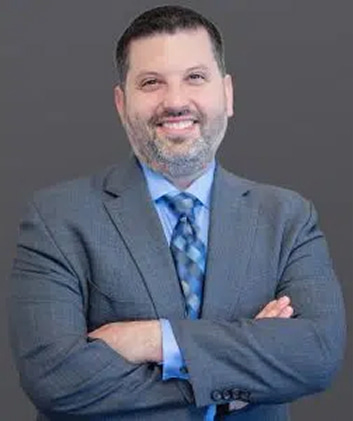TL;DR:
A poorly written or outdated advance directive can cause confusion, delays, or unwanted medical treatment during an emergency. Common mistakes include naming the wrong agent, using vague language, failing to update documents, and overlooking special family circumstances. In Florida, having a clear, current directive that works with your overall estate plan is key to protecting your wishes. Boca Raton Probate Attorneys helps ensure your plan is followed when it matters most.

You might think your advance healthcare directive is all set. You signed it, stored it somewhere safe, and maybe even told your family. But when an emergency strikes, mistakes buried in that paperwork can surface fast. A few overlooked details can leave families scrambling in the ER or fighting in court.
In Florida, an advance healthcare directive gives someone legal authority to make healthcare decisions for you if you’re incapacitated. It can also lay out your wishes about treatments, life support, or end-of-life care. However, unless it’s crystal clear and up to date, it might not do what you think it will. Here are the most common pitfalls and what you can do to avoid them.
Naming The Wrong Person As Agent
Many people name a spouse or adult child as their healthcare agent without much thought. However, the person closest to you emotionally may not be the best decision-maker in a crisis. If the person you choose cannot stay calm, advocate clearly, or follow instructions they personally disagree with, your directive could be ignored or challenged.
In court, this might lead to petitions for removal, guardianship proceedings, or delays in medical care. The court may also question whether the named agent is acting in your best interest if there is disagreement among family members. What should have been a clear plan can quickly turn into a legal and emotional standoff.
Using Vague Or Contradictory Language
Phrases like “no extraordinary measures” or “keep me comfortable” sound clear in conversation but fall apart under medical scrutiny. Doctors and nurses need specific guidance, especially during emergencies when decisions must be made quickly. If your directive leaves room for interpretation, the default is to continue full treatment, including interventions you may not have wanted.
This can prolong suffering, increase medical costs, and leave your family second-guessing every decision. When your loved ones are already under stress, the last thing they need is to argue over what you meant.
Letting The Document Get Outdated
Advance directives aren’t meant to be one-and-done. If you don’t revisit the document after major life changes, like divorce, a new diagnosis, or the loss of a trusted decision-maker, you risk having someone you no longer trust in charge of your care. Outdated instructions can create confusion and even land your family in court.
Judges may be forced to interpret whether the directive still reflects your wishes, especially if newer conversations or letters suggest otherwise. These situations often arise during guardianship or incapacity proceedings, when time is critical and clarity is everything.
Keeping It Hidden Or Inaccessible
Even a well-drafted directive is useless if no one can find it. If your agents or doctors cannot access the document quickly, healthcare decisions may default to state protocols. That could mean resuscitation, ventilation, or life support you would have declined.
In urgent care settings, there is little time to search through drawers or file cabinets. If a directive surfaces only after treatment begins, it may be too late to follow it.
Creating Conflicts With Other Estate Documents
It is common for people to create an advance directive separately from their will or trust. When these documents are not aligned, the potential for legal conflict increases. For example, one child may be named healthcare agent while another manages financial matters through a durable power of attorney.
If they do not see eye to eye, it can slow everything down, especially when quick decisions are needed. Conflicting instructions also make it harder for hospitals, banks, or care facilities to know who is truly in charge. These gaps can force families to sort things out under pressure, and sometimes at great emotional and financial cost.
Overlooking Special Circumstances
Standard templates do not account for religious preferences, blended families, or adult children with special needs. These situations require more detailed language and thoughtful planning. If a directive does not reflect your specific family dynamics or values, there is a greater chance it will be challenged or misinterpreted.
That opens the door to decisions being made based on default rules rather than your intent. The more your life situation differs from the standard form, the more important it is to make sure your instructions are clear, specific, and fully thought through.
How To Avoid These Mistakes
You do not need a legal background to create a solid advance directive. What you do need is a little care, clear communication, and a willingness to revisit your documents when life changes. These simple actions can save your loved ones from painful uncertainty and help make sure your medical choices are honored without hesitation.
- Choose the right healthcare agent – Select someone who can stay calm under pressure, communicate effectively with doctors, and follow your instructions, even if others disagree.
- Use clear, specific language – Avoid vague phrases like “no extraordinary measures.” Spell out your preferences for life support, resuscitation, nutrition, and pain management.
- Keep your documents current – Review your directive every three to five years or after major life events such as marriage, divorce, diagnosis, or the loss of a loved one.
- Make the directive easy to access – Provide copies to your agent, your primary care physician, and any specialists involved in your care. Consider uploading it to your patient portal if available.
- Align all estate planning documents – Make sure your advance directive, trust, will, and powers of attorney support each other and avoid conflicting instructions.
- Account for your unique situation – If you have strong religious values, a blended family, or a loved one with special needs, include language that reflects those realities.
Taking these steps does more than avoid paperwork problems. It gives your loved ones clarity, confidence, and peace of mind at a time when they will need it most.
Frequently Asked Questions About Advance Healthcare Directives
If you are thinking about creating or updating your advance directive, you are likely to have questions about how it works and what to expect. These answers can help you feel more confident moving forward with your planning.
How Many Witnesses Are Required For An Advance Directive In Florida?
Florida law requires two adult witnesses to sign your advance directive, and at least one of them must not be a spouse or blood relative. The witnesses confirm that you signed the directive willingly and appeared to be of sound mind.
Can I Name More Than One Healthcare Surrogate?
Yes, you can name a primary healthcare surrogate and list one or more alternates in case the first person is unable or unwilling to serve. However, naming co-surrogates who must make decisions together can lead to delays or disagreements during emergencies.
How Often Should I Review Or Update My Directive?
You should review your directive every three to five years, or sooner if you experience a major life change. Events like a serious diagnosis, relocation, or the death of a named agent are reasons to update your documents.
Where Should I Store My Advance Directive?
Keep your original in a secure but accessible place, such as a home file labeled “Medical Documents.” Give copies to your healthcare surrogate, your doctor, and any specialists you regularly see.
Will Doctors Outside Of Florida Honor My Directive If I Travel?
Most states recognize valid advance directives from other states, but the language and legal requirements can vary. If you travel often or split time between homes in different states, it is a good idea to have an advance healthcare directive lawyer review your documents for compatibility.

If you are unsure about what your current document covers or whether it still fits your needs, now is the time to get clarity. Planning ahead protects your health, your wishes, and the people you trust.
Why Legal Guidance Matters More Than Most People Realize
An advance directive may seem simple to fill out, but many of the most damaging mistakes happen when people rely on generic forms or guesswork. Boca Raton Probate Attorneys helps clients avoid the hidden pitfalls that can make a directive unusable when it is needed most. Legal guidance ensures that your agent has the right authority, your language meets Florida standards, and your documents hold up under real-world conditions.
We also help you catch problems you may not know to look for. A well-crafted directive should protect your voice and give your loved ones clear instructions. For those living in Palm Beach County or dividing time between states, we make sure your plan is strong, valid, and ready to work wherever life takes you.




